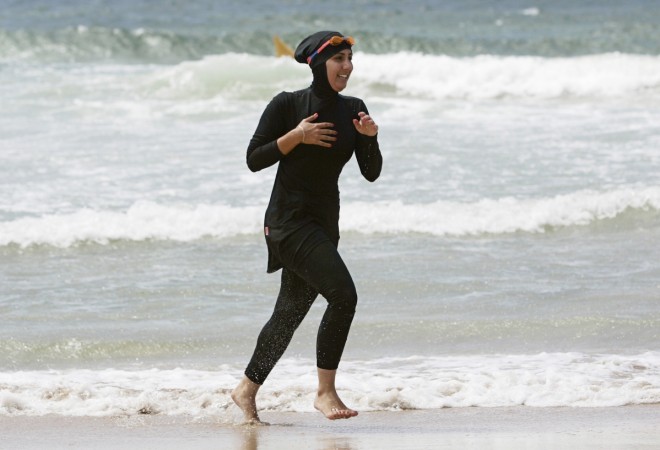
The highest administrative court of France on Friday suspended the ban on the burkini in a French Riviera town after it was challenged by rights groups.
The judgment delivered by the State Council ruled that individual liberties can only be restricted if wearing the Islamic swimsuit was a "proven risk" to public order. The judges said there was no such risk in the case before the court concerning Villeneuve-Loubet, one of around 30 towns to have introduced the bans.
Reactions to the rulings
The reactions to the rulings has further divided and polarised the French public. While various rights groups such as the French Council of the Muslim Faith (CFCM) and Amnesty International hailed the ruling, it also prompted condemnation and backclash from right-wing groups and politicians.
"By overturning a discriminatory ban that is fuelled by and is fuelling prejudice and intolerance, today's decision has drawn an important line in the sand… French authorities must now drop the pretence that these measures do anything to protect the rights of women," Amnesty's Europe director John Dalhuisen said.
CFCM Secretary General Abdallah Zekri said: "This victory for common sense will help to take the tension out of a situation which has become very tense for our Muslim compatriots, especially women."
However, fanning right-wing sentiments, former French president Nicolas Sarkozy, who is currently preparing for another stab at presidency after losing the position in 2012, said in his first big speech while announcing his candidacy that if he is elected he will impose a national ban on burkinis in France.
"I refuse to let the burkini impose itself at French beaches and swimming pools... There must be a law to ban it throughout the Republic's territory," the 61-year-old was quoted saying by the Telegraph.
What is a burkini and why is it controversial?
The word "burkini," a portmanteau of "bikini" and "burqa," is a full-body swimsuit that can be described as a wetsuit with a hood. It's been designed to cover all parts of the body except for the feet, hands and face, and yet be form-fitting but loose enough and practical to swim in. Its origin is traced to cater to the strict modesty dress codes that are typically adhered to by Muslim women.
Those who argued for the ban said face coverings prevent the clear identification of a person, which is both a security risk and a social hindrance in a society that relies on facial recognition and expression in communication.
Why has the issue flared up recently?
The issue had erupted into the international spotlight and ignited the debate on secularism after pictures of the police enforcing the ban by fining Muslim women on beaches in several towns, including in the popular tourist resorts of Nice and Cannes, went viral on social media.
The backlash also prompted a French politician to threaten legal action against social media users for sharing photos of the police enforcing a ban on the burkini.
Since the controversial ban has been enforced, 24 women have been fined. In an encouraging gesture by liberal and secular-minded Netizens across the world, a crowdfunding page titled JustGiving set up by two women is helping to pay off burkini ban fines. The page, which has already received hundreds of donations, has already surpassed its target of £1,993.












